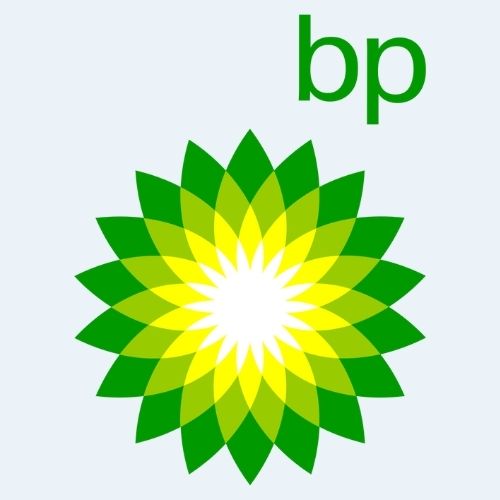BP PLC is one of the largest companies in the energy sector, operating within the oil, gas, and consumable fuels industry.
Originally founded as British Petroleum, the company has evolved over the decades into one of the leading global players in the energy industry.
Its portfolio spans oil and gas exploration and production, refining, fuel marketing, energy distribution, and investments in renewable sources.
BP operates in multiple global markets, including North America, Europe, Asia, and Latin America. In the United States, it maintains strong operations in offshore exploration and refining, while in Brazil, it has a presence in biofuels and renewable energy.
Additionally, its trading and distribution activities are spread across various continents. The company is actively pursuing energy diversification by investing in renewable energy and sustainable solutions as part of its energy transition strategy.
BP is also involved in green hydrogen, carbon capture projects, and the development of alternative fuels.
With a workforce of approximately 68,100 employees, BP operates under an integrated model that includes oil and gas production, refining, transport, and marketing of fuels and petrochemical products.
Its infrastructure includes refineries, distribution terminals, wind farms, joint ventures, and research centers focused on clean energy innovation.
Headquartered in the United Kingdom, the company has global operations and is listed on the New York Stock Exchange (NYSE) under the ticker BP.
History and founding of BP PLC
BP PLC was founded in 1909 in the United Kingdom under the name Anglo-Persian Oil Company. Established to explore oil in Iran, the company grew rapidly and became one of the largest oil producers in the world. In 1954, it changed its name to British Petroleum (BP) and expanded its global footprint.
In its early years, BP faced challenges related to the development of the oil industry and global market volatility. Throughout the 20th century, it established a strong presence in oil exploration in the North Sea, Middle East, and North America, while expanding its refining and distribution networks.
The company experienced significant growth during the 2000s, including its merger with Amoco in 1998, which strengthened its position in the North American market. However, it also faced major setbacks, most notably the Deepwater Horizon oil spill in 2010 in the Gulf of Mexico, which had a major financial and reputational impact.
In recent years, BP has accelerated its investments in energy transition, including the acquisition of renewable energy assets and sustainable technologies. Between 2020 and 2024, the company reinforced its decarbonization strategy, increasing its presence in green hydrogen, carbon capture, and solar and wind energy projects.
Additional Information
The Company BP PLC (United States), is listed on NYSE with a market value of $ 98.05 Billions, having an equity of $ 74.00 Billions.
With a total of 68.100 employees, the company is listed in the sector of Energy and categorized in industry of Oil, Gas and Consumable Fuels.
In the last 12 months the Company had a revenue of $ 189.34 Billions, which generated a loss in the amount of $ 55.00 Millions.
As for its main indicators, the Company has a P/E ratio of 1,782.66, a P/BV ratio of 1.32 and in the last 12 months the dividend yield of BP was at 5.12%.
The Company is traded internationally through the ticker BP.







 Tesla
Tesla






























